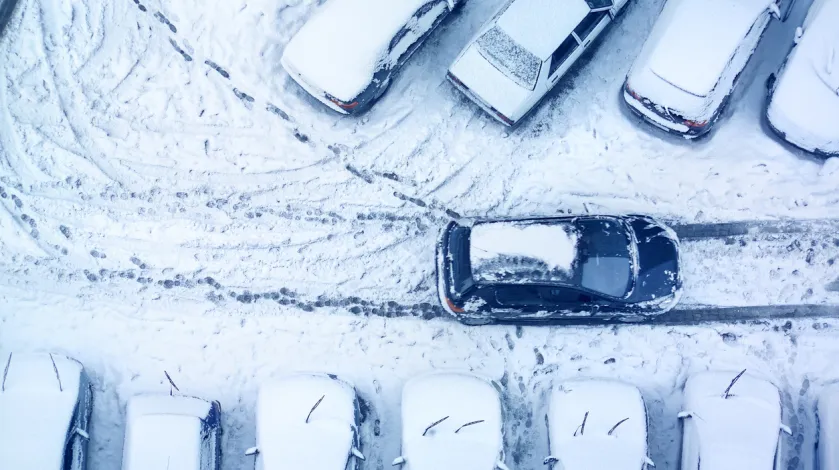Seven Ways to Prevent Snow-Related Injuries
Author

South Shore Health
When wintry weather hits, it's important to take the proper safety precautions — whether the snow just started coming down or it's time to dig out.
These seven safety tips can help you avoid injury during snowy weather.
Take Care with Snow Blowers
The sound of snow blowers is ubiquitous during a South Shore snowstorm, but it's important to remember that these are very powerful machines, and caution is needed to operate them safely.
Never start a snow blower in a closed garage or shed, and check the surrounding area for any debris (rocks, branches, etc.) before clearing snow.
Depending on the kind of snow or if you encounter debris, your snow blower may become jammed.
Never attempt to clear the blockage with your hands!
Ensure that your snow blower is powered off and use the included accessory to clear any blockage.
Stay Hydrated
During physical activity, including working outside in the harsh winter weather, one should continually take breaks and drink plenty of fluids.
Dehydration can cause cramping, lowered blood pressure, and even fatigue.
Don’t Smoke
Before shoveling or snow blowing, it’s recommended to not consume heart accelerators such as caffeine and/or cigarettes.
Both products can increase one’s blood pressure and the likelihood of a stroke, heart attack, or exhaustion.
Ease Up on the Ice Melt
Less is best! According to poison control experts, ice melt can cause rashes and skin irritation if ingested.
Using less keeps it out of your house too, as the small pellets can be brought into the house by pets and shoes. Keep ice melt out of the hands of children.
Remember Your Feet
Whether you’re shoveling or snow blowing, be sure to wear correct footwear, use road salt or grit, do not walk on compacted snow, and continuously knock off snow from your shoes.
Prep for Roof Work
Every snow storm leaves a layer of snow and ice on the roof of your house.
If you grab a ladder and attempt to tackle removal on your own, the United States Department of Labor recommends that you wear proper shoes, use a personal fall arrest system, look for electrical wires, and do not work alone.
Roof rakes are an easy purchase to help remove snow from roofs.
Be Careful While on Foot
As snow becomes built up along the roads, it becomes difficult for drivers to see and stop for pedestrians.
If you’re taking part in outdoor activities, use sidewalks, wear reflective clothing, and tell children not play in or near roads.
Have a sprain, strain, or other injury after clearing snow? Consider walk-in urgent care for same-day treatment of minor injuries!
Learn more about Urgent Care.
Author

South Shore Health







